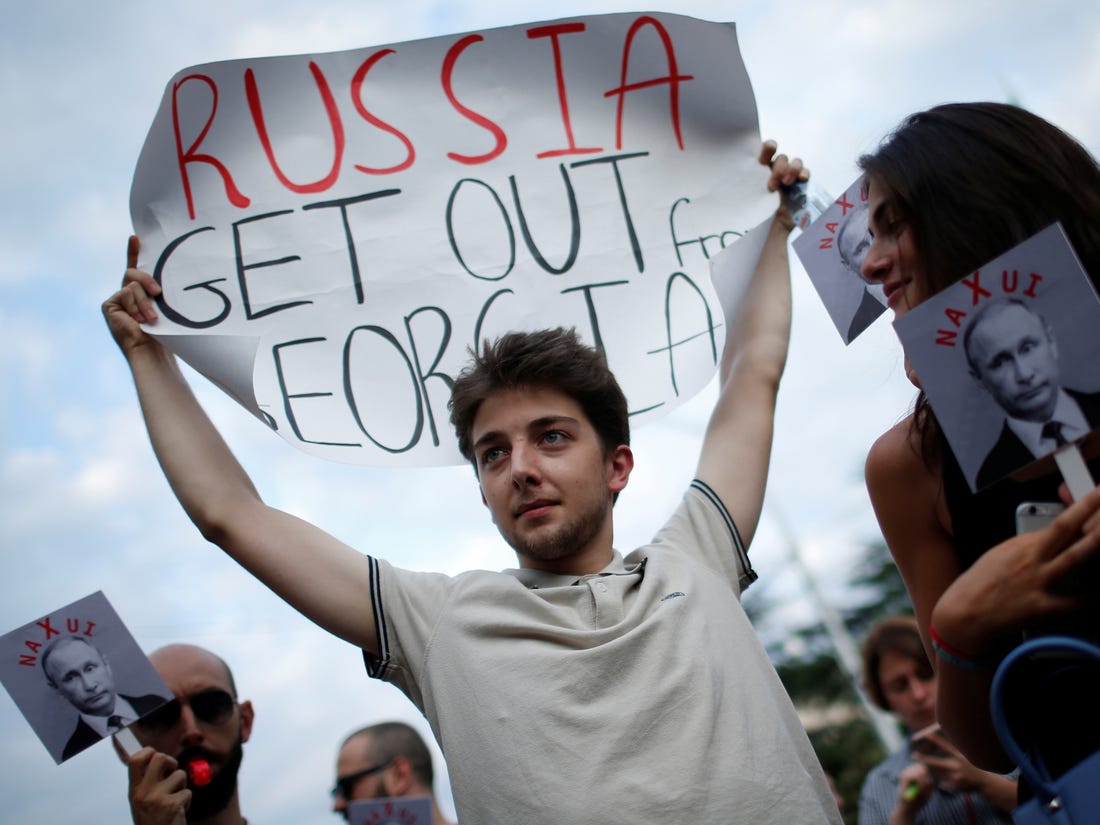In August 2008, amidst the Olympic Games of that year, tensions between Georgia and its separatists’ territories of South Ossetia and Abkhazia escalated to the outbreak of a war between Georgia and Russia. The conflict endured for five days, which could be seen as a short period of time, but its consequences and effects remain until today, 13 years after it occurred. In fact, Georgia may have finally received the recognition of a battle that it has been silently fighting for the past years.
On January 21st 2021, the European Court of Human Rights (ECHR) ruled that Russia breached six articles of the European Convention of Human Rights, plus that it was responsible for other human rights violations during the Russo-Georgian War of 2008 and in its aftermath. Among the found violations by ECHR are right to life, prohibition of torture, respect for private and family life, protection of property, right to liberty and security and freedom of movement. Moreover, the Court ruled that Russia had the obligation “to carry out an adequate and effect investigation” on the events that occurred both after and during the phase of hostilities, to which Russia breached and failed to meet its obligations.
The most important decision of the Court lies in the reconnaissance of the effective control that Russia has maintained in South Ossetia and Abkhazia for all those years, despite having officially withdraw all troops in October 2008. Due to it, Russian forces might not have been directly involved in the human rights violations, but since Russia was effectively controlling those regions, the jurisdiction to guarantee and maintain the safety and peace of citizens and prisoners of war fell on Russia.
ECHR ruling is, therefore, a win that Georgia has been waiting for almost 13 years. The country is finally holding its neighbor accountable for violations, such as ill-treatment and torture of prisoners of war, to which ECHR concluded that “the conditions of detention of some 160 Georgian civilians and the humiliating acts to which they were exposed, […] caused them undeniable suffering and must be regarded as inhuman and degrading treatment.”
Furthermore, it is bringing to the international stage’s attention that Russia is still pushing for conflict in the region, and not acting as a neutral actor as it has been portraying in the last years. The type of conflict perduring is neither direct, nor it is easily visible to outsiders. Since 2011, a ‘borderization policy’ has been happening in the borders between Russia, Georgia and South Ossetia, which it is not known if it is incited by Russia or pro-Russian separatists. Also, Georgian citizens are still being detained by Russian controlled occupation forces or by pro-Russian separatists in regions that are controlled by the central government of Georgia, and being sentenced to jail.
Russia is still holding its position even after ECHR ruling in January. In fact, one of the detainees had been sentenced to 12 years in prison a few days after the Court’s decision. In this matter, the Georgian Foreign Ministry stated, “Russia is engaged in destructive activities despite its statements on dialogue and cooperation with Georgia.”
Although a legal win to Georgia, the ECHR decision could not resolve the country’s tension with its separatists’ movements and Russia, in fact, it could even exacerbate it. On the day the verdict came out, the official account of the Ministry of Foreign Affairs of Russia on Twitter posted a message from Maria Zakharova, the spokesperson of the Ministry, stating that “the friendly relations between #Russia and #SouthOssetia are based on the principles of alliance and integration and are not subject to momentary considerations. Russia proactively supports South Ossetia in its efforts to build a modern democratic state.”
The message posted could also mean that Russia may overlook the Court’s decision, which, in fact, it is already preparing its constitution to allow it. In October 2020, the Russian Parliament approved a bill that allows the national legislation to have precedency over international treaties. In that way, ECHR’s decision would not abide to Russia. The bill is not yet into full force, as it needs the approval of the upper house of Parliament and President Putin’s signature. However, as it exists, it could mean a loss to Georgia in terms of humanitarian resolution.
The Georgian-Russian War may have had its hostilities enduring only for five days, but its consequences are still unfolding. In terms of diplomacy, it is also known that Georgia has plead for a membership with NATO, which is a matter of concern to Russia, South Ossetia and Abkhazia. On the subject, the former Abkhazian President, Raul Khadzhimba, stated that NATO was enforcing Georgia’s army to have a “base of operations to create a threat for Russia from the south”, while the former Prime Minister for Russia, Dmitry Medvedev, said that “this could provoke a terrible conflict”.
As the diplomatic ties between these two countries are still uncertain, ECHR ruling is still a win to Georgia. A legal win that could bring the necessary international attention to resolve this situation that persisted for 13 years.

